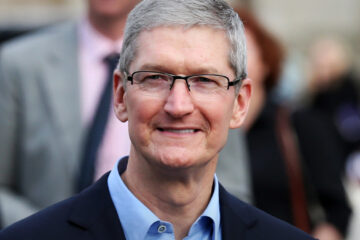Nvidia (NVDA) CEO Jensen Huang has a new statement on quantum computing, but this time, it isn’t sending stocks down.
In January 2025, Huang sent shockwaves through the tech sector when he said he believed quantum computing was likely at least 15 years away from having practical applications. This unexpected take caused quantum computing stocks to plunge into a freefall, while experts contested his argument.
💵💰Don’t miss the move: Subscribe to TheStreet’s free daily newsletter💰💵
This week, Huang addressed this area of technology again, offering a new take that starkly contrasts with his earlier one. The Nvidia CEO has made it clear that his perspective on quantum computing has changed, predicting that an important moment is approaching for the industry.
Many quantum computing stocks have performed well this year, even as they continue to be overshadowed by the rise of artificial intelligence (AI). But now an AI leader is shining a light on the technology’s progress and growth potential.
Nvidia CEO Jensen Huang has issued a bullish prediction for the future of quantum computing.
Image source: SOPA Images/Getty Images
Jensen Huang has a bold prediction for quantum computing
This week, Huang took the stage in front of many AI investors and enthusiasts at the Nvidia GTC developer conference in Paris, France, on Wednesday, June 11. He discussed the company’s innovations and plans for growth, but also laid out his new perspective on quantum computing, making it clear he sees the industry continuing to grow.
Related: Nvidia stands to lose billions, thanks to new Trump policy
During his address, Huang predicted that “quantum computing is reaching an inflection point,” referring to the point in differential calculus at which a curve changes direction.
He took it a step further, adding, “It is clear now we’re within reach of being able to apply quantum-classical computing in areas that can solve some interesting problems in the coming years.”
Quantum computing leverages the principles of quantum mechanics to perform computation tasks at a much higher rate than classical machines. This includes utilizing quantum bits of information, known as qubits, to solve complex problems.
Now Huang, one of the tech sector’s most influential leaders, is embracing quantum computing, only months after stating it seemed to be years away from having practical applications. In March 2025, he hosted the first-ever Nvidia Quantum Day at the company’s U.S. GTC conference, during which he publicly redacted his earlier prediction.
The Nvidia CEO also noted that he believes a new generation of supercomputers is coming and that he expects every one to include a quantum processing unit (QPU) assigned, as well as a QPU connected to graphics processing units (GPUs), the hardware Nvidia is famous for building.
More Quantum Computing News:
Veteran analyst who predicted quantum computing stocks rally unveils IonQ stock price targetIonQ CEO’s strong 4-word message sends stock soaringAnalyst flags new quantum computing stocks to buy
“Just like Moore’s Law, I could totally expect 10 times more logical qubits every five years, 100 times more logical qubits every 10 years,” he added, comparing it to an observation from the co-founder of Intel, who predicted exponential growth for classical computing technology.
Huang envisions a future that many used to see as impossible
Some inventors and business leaders succeed because they are able to visualize a future others could not. That seems to be the case with Huang, as he shines a light on quantum computing and how it could help spur growth for other areas of technology.
Related: Broadcom could blow past Nvidia, expert predicts
More specifically, he seems to foresee a future in which quantum computing and classical architectures work together to solve problems that many experts have long believed could not be solved.
“Every country, every society, every company will depend on” intelligence infrastructure, he stated. “Europe has now awakened to the importance of these AI factories, the importance of the AI infrastructure.”
These predictions are similar to those made by another quantum computing leader, D-Wave Systems (QBTS) CEO Dr. Alan Baratz. When Huang issued his bearish quantum predictions, Baratz responded by arguing that his company’s technology disproved that hypothesis.
He also noted that AI and quantum could work together effectively, helping usher in a new era of growth for these two technologies. Now, Huang seems to be on the same page, sharing a vision of a future shaped by advancements in both.
Related: Heavily shorted AI stock is rapidly climbing the Fortune 500


